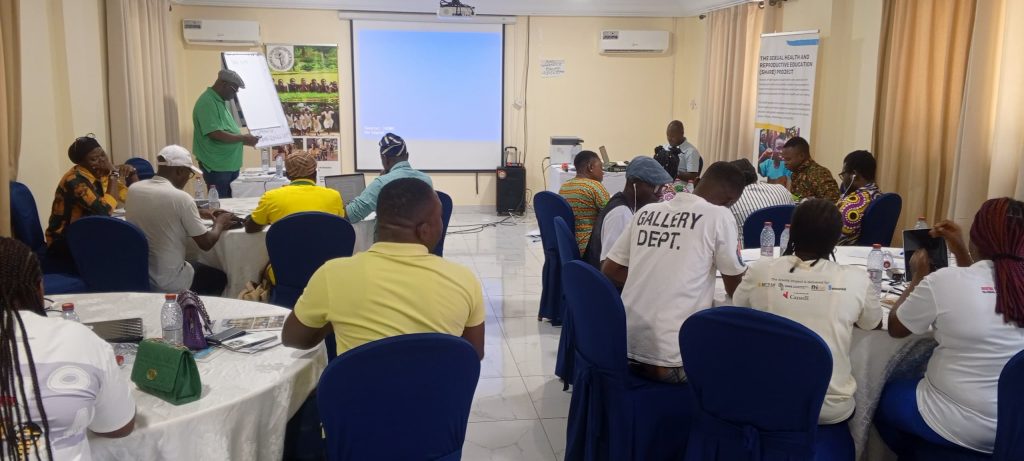By Gilbert Azeem Tiroog
Bolgatanga, April 03, GNA – The Forum for African Women Educationalists (FAWE) Ghana has equipped 21 media practitioners, comprising journalists and community center operators in the Upper East Region, to enhance responsible reporting on gender equality, reproductive health, and rights issues.
The media practitioners, drawn from various media outlets across the region, were taken through gender-sensitive impact storytelling, among other topics, to enable them to carry out Adolescent Sexual and Reproductive Health and Rights (ASRHR) advocacy and gender-sensitive communication and reporting.
The three-day training also focused on enhancing the competencies of the media practitioners in effective writing and reporting on gender equality issues in the districts and the region as a whole.
The training formed part of the FAWE’s Sexual Health and Reproductive Education (SHARE) project, being implemented in Kassena-Nankana and Builsa North Municipalities, Kassena-Nankana West, and Bongo Districts in the region.

The project, aimed at addressing harmful traditional practices and societal norms affecting young girls, is in partnership with Right to Play, WaterAid, and FHI 360, with funding from Global Affairs Canada.
Mr. Emmanuel Gazari, a Senior Field Officer with FAWE Ghana, who addressed the media on the sidelines of the workshop, indicated that the media played a critical role in advocacy,
and therefore enhancing their capacity for gender-sensitive and culturally appropriate reporting was key to changing narratives.
He noted that though the SHARE project had made significant strides in reducing teenage pregnancies in the implementing areas, recent concerns over illegal mining activities in some of these areas have led to a rise in cases and the FAWE Ghana was exploring ways to extend its intervention to the affected areas.
Mr. Gazari emphasized that the training had re-echoed the need for reporters to maintain ethical standards in reporting during emergencies, with a focus on protecting the dignity and safety of victims.
He added that, “beyond the statistics, the project has transformed lives. In one instance, a young girl who was rescued from forced marriage through the initiative is now exceling at university and maintaining a first-class academic record.”
The FAWE Ghana, since 2023, has trained 64 media practitioners in three cohorts.
Mrs. Mercy Yamtot, a participant and broadcast journalist with A1 Radio, a local radio station in Bolgatanga, said: “This training has been impactful. I’ve learned a lot, and I have realized my biases in how I wrote gender stories. This workshop opened my eyes to word choices, and going forward, I will improve on that.”
Mr. Alexander Bombande, a reporter with Mike FM in Navrongo, also indicated that, “The workshop has been insightful because we have been exposed to basic principles that we sometimes ignore when reporting on issues of gender. Going forward, this knowledge gained will shape my reports.”
GNA
FAA/BM